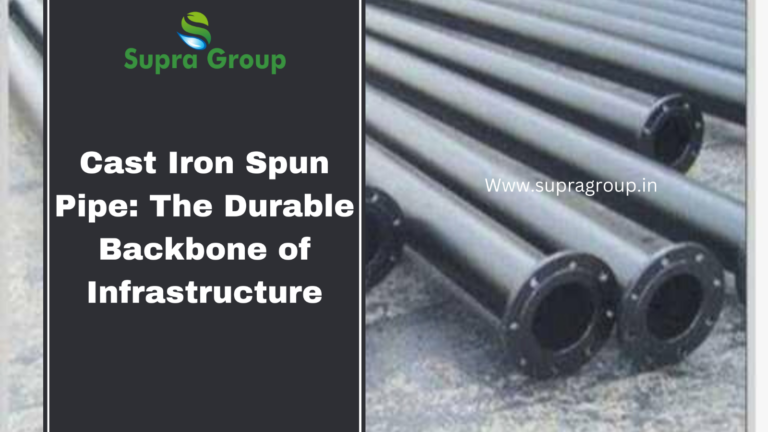
In the world of construction and infrastructure, the importance of reliable and durable materials cannot be overstated. Cast Iron Spun Pipe stands as a testament to its time-tested strength, providing an essential component for various applications in civil engineering. Let's delve into the world of Cast Iron Spun Pipe, exploring its characteristics, applications, and why it remains a preferred choice in the construction industry.
Understanding Cast Iron Spun Pipe
Cast Iron Spun Pipe is a form of ductile iron that undergoes a meticulous casting process to achieve its unique properties. The spinning method involves casting molten iron into a rotating cylindrical mold, creating pipes with consistent thickness and a smooth interior surface.Characteristics of Cast Iron Spun Pipe
- Strength and Durability: Cast Iron Spun Pipe is renowned for its exceptional strength and durability. It can withstand heavy loads, making it ideal for underground applications, where the pipe is subjected to external pressures.
- Corrosion Resistance: The composition of cast iron provides inherent resistance to corrosion. This is a crucial feature, especially when considering the exposure of pipes to various environmental elements and soil conditions.
- Smooth Interior Surface: The spinning process ensures a smooth interior surface, minimizing friction and facilitating the efficient flow of fluids. This characteristic is particularly beneficial for sewage and drainage systems.
- Fire Resistance: Cast iron is inherently fire-resistant, making Cast Iron Spun Pipe a safe choice for applications where fire safety is a concern. It can withstand high temperatures without compromising its structural integrity.
- Longevity: Cast Iron Spun Pipe is known for its longevity. When properly installed and maintained, these pipes can have a service life that spans decades, contributing to the overall sustainability of infrastructure projects.
Applications of Cast Iron Spun Pipe
- Water Distribution Systems: Cast Iron Spun Pipe is widely used for water distribution systems. Its robustness ensures reliable water supply in urban and rural areas.
- Sewage and Drainage Systems: The smooth interior surface and corrosion resistance make these pipes suitable for sewage and drainage systems. They efficiently transport wastewater while resisting the corrosive effects of sewage.
- Underground Utility Networks: Cast Iron Spun Pipe is employed in underground utility networks, including gas and steam distribution. Its strength and durability make it a reliable choice for these critical applications.
- Industrial Pipelines: Industries rely on the strength and resilience of Cast Iron Spun Pipe for various industrial applications, including transporting chemicals and other fluids.
- Stormwater Management: The durability of these pipes makes them suitable for stormwater management systems, where they can efficiently handle the flow of rainwater.

